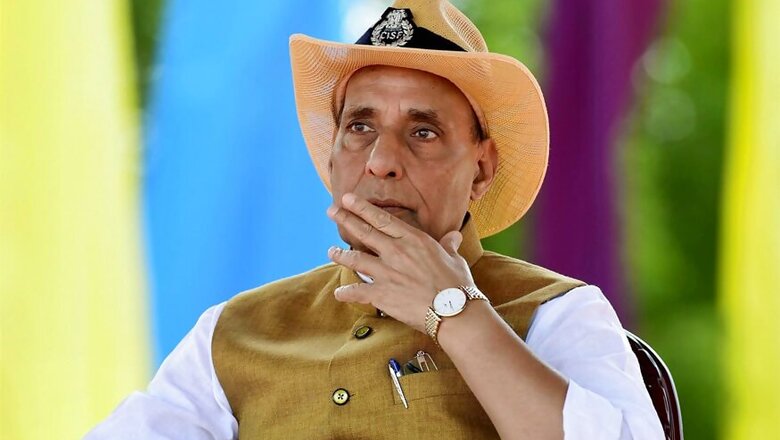
views
Lucknow: With Supreme Court ordering former chief ministers of Uttar Pradesh to vacate government bungalows, Union Home Minister Rajnath Singh and Rajasthan Governor Kalyan Singh will be the first among six other former chief Ministers to give up the accommodation allotted to them.
The apex court, while hearing a petition filed by NGO Lok Prahari challenging the amendments made by the erstwhile Akhilesh Yadav government to the UP Ministers (Salaries, Allowances and Miscellaneous Provisions) Act of 1981, had observed that a chief minister is at par with a common man once his or her tenure ends.
A staff member working at Rajnath Singh’s residence said that the bungalow at 4, Kalidas Marg will be vacated by Sunday and he is likely to shift to his private residence in Vipul Khand area in Gomti Nagar. Sources say that the Governor of Rajasthan, Kalyan Singh, will also vacate the government bungalow, soon.
On Thursday, the Yogi Adityanath government served notices to six former chief ministers, who have been occupying sprawling government bungalows in Lucknow, and asked them to vacate the same in 15 days. The ex-chief ministers to vacate their bungalows include Samajwadi Party patriarch Mulayam Singh Yadav, SP chief Akhilesh Yadav, BSP chief Mayawati, ND Tiwari, BJP leaders Rajnath Singh and Kalyan Singh.
Sources said that Mulayam Singh Yadav refused to receive the notice, stating that he was not present in the city. Meanwhile, the notice issued to former CM ND Tiwari will be dispatched to his Delhi address as there was no one except a guard at the bungalow in Lucknow.
A bench headed by Justice Ranjan Gogoi quashed the law, which entitled former chief ministers to retain government bungalows for a lifetime, ruling that granting further privilege violates Right to Equality under Article 14.
“The Chief Minister, once he or she demits the office, is at par with the common citizen, though by virtue of the office held, he or she may be entitled to security and other protocols. But allotment of government bungalow, to be occupied during his or lifetime, would not be guided by the constitutional principle of equality,” noted the bench.


















Comments
0 comment